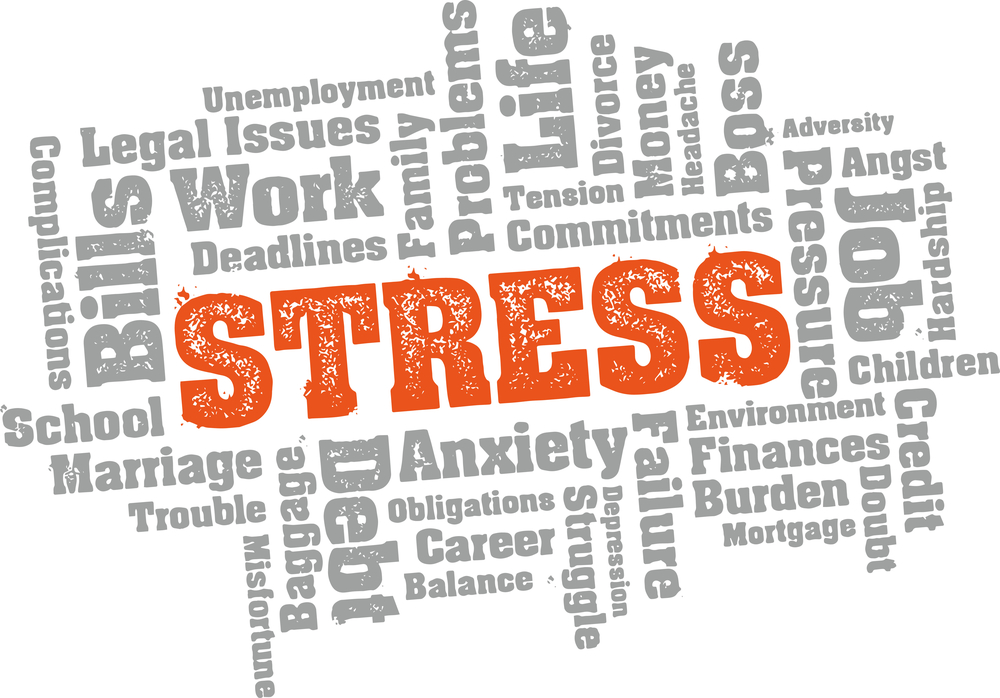
The impact of stress on your hormones
We all know too much stress is bad for us (increased risk for heart disease, high blood pressure, stroke, diabetes and can trigger most other body systems to slow or even shut down – think immune, digestive, reproductive systems etc), yet a little bit of it can also be good for us. But most people are unaware of the major effect stress can have on their hormones.
What is stress?
Stress refers to a person’s physical and emotional response to a situation, whether it be real (accident, impending physical threat) or perceived (worrying about paying bills, family problems, etc). Other stressors like working long hours, stressful jobs, deadlines, exams, as well as things like infections, food sensitivities, toxic exposure and lifestyle stressors such as eating on the run, sedentary lifestyles, poor diet, smoking, lack of sleep all add to our body’s burden of stress.
Our stress hormones are designed to trigger us into action to help us through stressful situations. We have 2 main stress hormones:
- Adrenaline. Produced by the adrenal glands when the brain identifies a stressful situation. That initial heart-pounding, sweat-inducing feeling of getting a fright is brought on by adrenaline. Adrenaline provides the surge of energy and mental focus to see you through an immediate stressful/dangerous situation.
- Cortisol. A steroid hormone, commonly called the ‘stress hormone’. It is released by the adrenal glands and is responsible for getting us out of bed in the morning (a healthy cortisol pattern shows cortisol levels following a particular pattern throughout the day, with levels being highest just after waking). Cortisol also keeps us on a high state of alert once the adrenaline has calmed down. It is slower to be released than adrenaline but has a longer term effect. It affects blood pressure and reduces the functioning of non-essential bodily functions. Cortisol becomes problematic when our bodies are constantly producing it in response to stressful situations.
The ‘fight or flight’ response
For our early ancestors, this fight or flight response was typically deployed in more threatening situations and could literally be the difference between life and death. For example, if a lion were to chase you down the street your first response would be to run! However modern day living sees our stress response being constantly activated, albeit at a much lower threat level than being chased by a lion!
The big problem here is that our stress response is basically the same, regardless of whether it is a big deal (that lion charging us) or a tight work deadline. And whereas in the past the lion would move on and we would return to a normal state, nowadays our stress response remains on high alert and is always ‘on’. This means we are constantly exposed to the physical demands of stress, and long term this is not good.
Physical signs of stress
These can be many and varied, but can include: tiredness and fatigue, anxiety, depression, mood swings, irritability, poor memory/forgetfulness, disrupted sleep patterns, insomnia, digestive issues, fertility issues, headaches/ migraines, hormonal issues (PMS, irregular periods), loss of libido, raised blood pressure, skin irritations, comfort eating/cravings and weight gain (cortisol may be partly responsible for that muffin top you just can’t seem to get rid of).
How does stress affect our hormones?
Chronically high cortisol levels will see a decline in other hormones such as sex hormones (can result in reduced sex drive, irregular periods, PMS, etc), thyroid hormones (which can lead to weight gain, fatigue and changes to our metabolism) and insulin, the hormone which regulates our blood sugar levels (also called the fat storage hormone).
How to avoid the stress-hormone trap?
Obviously taking steps to minimize stress is key, and how you do this will be different for everyone. This is a blog post in itself, but considering things like taking breaks at work, allowing some ‘me’ time, reading a book, taking some digital detox time each day (especially before bed), going for a walk, including exercise in your routine (not just high intensity cardio workouts either), try yoga, tai chi, breathing techniques, meditations or whatever it is that makes you feel good and gives you some head space. And this really is very individual. For some people the very thought of meditation is stressful in itself, for others its life changing.
I’m stressed – what should I do?
Pay attention to your diet. Your adrenal glands (the home of your sex and stress hormones) may need some TLC. Important nutrients to consider:
THE MACROS
Are you eating enough high-quality proteins? Eg eggs, nuts and seeds, wild fish, lean meats, chicken (ideally organic and grass-fed). Protein helps to balance blood sugar levels. If you are struggling to keep your cortisol balanced, your blood sugar levels will also likely be affected.
Do you eat healthy fats? Eg avocados, oily fish, nuts and seeds? It’s time to stop avoiding these healthy fats. Not only do they also help us keep blood sugar levels balanced and are a healthy source of energy, but they are also anti-inflammatory.
Make sure you choose complex carbs (starchy vegetables such as sweet potato, pumpkin, brown rice, seedy bread) to help keep blood sugars balanced. Complex carbs (those that are fibre rich and take longer for the body to break down than simple carbs such as white braed/pasta) also tend to be more nutrient dense (white bread or pasta contain very few nutrients).
EAT AN ABUNDANCE of whole-foods – a rainbow of fresh vegetables and some fruit to ensure you are maximizing your vitamin and mineral intake. B vitamins and vitamin C are particularly important for maintaining adrenal health, as are magnesium and zinc.
REMOVE – Processed food, sugars, alcohol, caffeine (it stimulates your adrenal glands to produce more stress hormones) and foods that you think you may be intolerant/allergic to (they cause inflammation). And stop smoking!
Lifestyle
- Identify and remove (where possible) stressors in your life
- Find strategies to help you deal with stress, eg listen to music, taking ‘me’ time, breathing techniques, meditation etc
- Include a variety of exercises into your routine.High intensity cardio type exercise has its place, but it also increases the body’s stress response. Consider yoga, pilates or simply walking in the park
- Magnesium helps us cope with stress – it is called the relaxing mineral. Taking a bath (or even a foot bath) in Epsom Salts is a good way of boosting your magnesium levels and most people find a nice warm bath relaxing!
Get tested. If you think your stress levels are out of control, or if you think your cortisol patterns are not what they should be – ie high in the morning (you may identify with this being a problem if you struggle to get going in the morning and can’t drag yourself out of bed. Particularly important if you notice a change in this pattern). Cortisol levels should gradually drop during the day (again, you may identify a problem if you suddenly come alive at bed time and just can’t calm down to get to sleep). People who have problems with their cortisol can report feeling ‘tired but wired’, or suffer with energy slumps during the day, insomnia, and general exhaustion.


